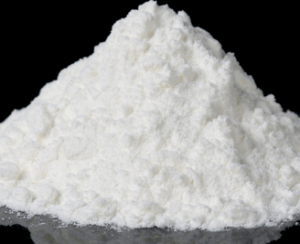Ghana hosts consultative meeting on illicit drug policy reforms
 The West Africa Civil Society Institute (WACSI) has opened a two-day multi-stakeholder consultative meeting towards the decriminalisation of a limited quantity of consumption of illicit drugs and possession for personal use.
The West Africa Civil Society Institute (WACSI) has opened a two-day multi-stakeholder consultative meeting towards the decriminalisation of a limited quantity of consumption of illicit drugs and possession for personal use.
Their argument is that drug use must be regarded primarily as a public health problem, rather than a criminal offense punishable by a jail sentences, because such punishments have proven over the years to be an ineffective solution to addressing the problem.
They have, therefore, called for urgent policy reforms.
Nana Asantewaa Afadzinu, the Executive Director of the West Africa Civil Society Institute, said drug addiction ought to be identified just like any medical condition and be given the corresponding treatment rather than punishments, which often worsened the health conditions of addicts.
Mrs Afadzinu said it also compounded the nation’s problems by putting huge pressures on the criminal justice system, increased corruption and the economic burden on the State purse for the upkeep of offenders in jail.
She, therefore, advocated for increased and sustained investments in improving and expanding rehabilitation centres, and equipping them with the requisite resources and personnel be able to provide the required services to drug addicts in order to reverse the increasing trend, which was prominent among the youth.
If Ghana, and indeed West Africa, she said failed to adopt sustained strategies to address the drug problem, it could plunge the continent in to high insecurity, political and economic chaos and a state of anarchy in a few years to come, because of the increasing rate of trafficking and use of illicit drugs.
According to Mrs Afadzinu, “Studies have shown that most drug addicts convicted, return from jail with worse conditions than before, sometimes becoming members of organised crime groups, posing a huge threat to both their communities, good governance, peace and stability, economic growth and public health in West Africa, a region that has recently emerged from decades of violent conflicts.”
She said the challenges in addressing the drug problem were enormous and must be tackled from a multi-sectoral angle to ensure a holistic and sustained support by both the government and the public sector.
Thus, the key outcomes of the meeting would include the clear identification of progress and limitations under the current drug policy measures, and the creation of awareness on the need for synergy between governments and Civil Society Organisations.
These would be done around new strategies to address drug trafficking issues through health-friendly measures, and to develop a framework for a Sub-region’s position that aligns with the main outlines of the Common African Position in anticipation of the United Nations General Assembly’s Special Session (UNGASS) to be held in 2016.
Mrs Afadzinu explained that despite the numerous actions taken at regional levels and across Africa for a balanced approach on the issue using the African Union Plan of Action on Drugs 2013-2017 as a guideline, there was the need for the West African sub-region to agree on a Common African Position for the UNGASS in 2016, and also to scale-up evidence-based and human rights-based services for drug addicts.
Dr Lasana Gberie, a Consultant of the Open Society Initiative for West Africa (OSIWA) on UNGASS 2016, said Ghana wanted to argue on the line of the institutionalisation of harm reduction strategies alongside the strengthening of measures to effectively combat drug trafficking across the Sub-region.
Source: GNA
